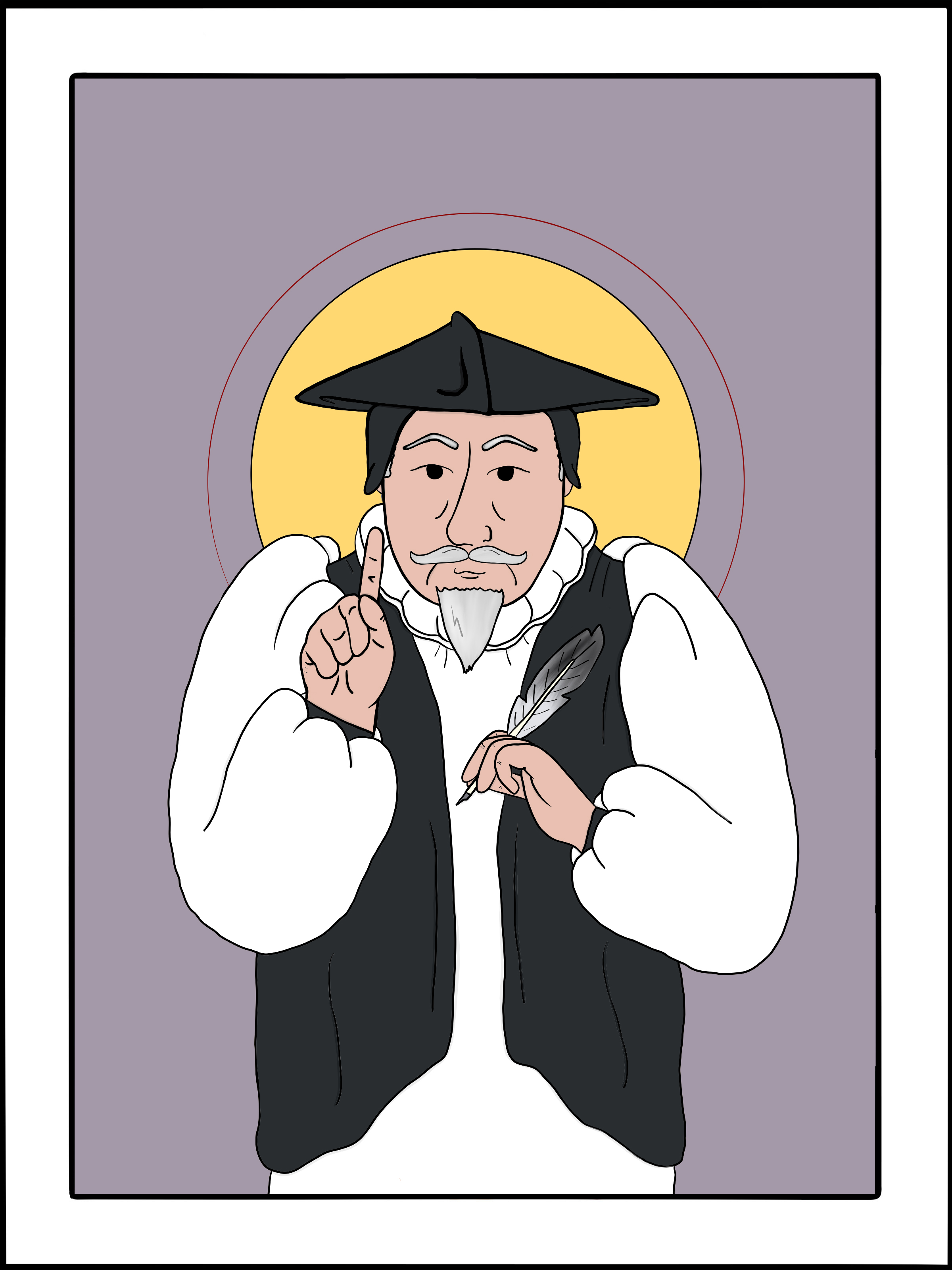
January 10
William LauD
Archbishop of Canterbury, 1645
art by Rev. Kirsten Kohr of Uhrichsville, OhioKeep us, O Lord, constant in faith and zealous in witness, that, like your servant William Laud, we may live in your fear, die in your favor, and rest in your peace; for the sake of Jesus Christ your Son our Lord, who lives and reigns with you and the Holy Spirit, one God, for ever and ever. Amen.
William Laud was born in 1573 and became Archbishop of Canterbury in 1633, having been Charles I’s principal ecclesiastical adviser for several years before. He was the most prominent of a new generation of church leaders who disliked many of the more Protestant ritual practices that had developed during the reign of Elizabeth I, and who were bitterly opposed by the Puritans.
Laud believed that the Church of England was in direct continuity with the medieval church, and he stressed the unity of church and state, exalting the role of the monarch as the supreme governor of the church. He emphasized the centrality of the priesthood and the sacraments, particularly the Eucharist, and he caused consternation by insisting on reverencing the altar, returning it to its pre-Reformation position against the eastern wall of the church and hedging it about with rails.
As head of the courts of High Commission and Star Chamber, Laud was abhorred for the harsh sentencing of prominent Puritans. His identification with the unpopular policies of King Charles, his support of the war against Scotland in 1640, and his efforts to make the church independent of Parliament all made him widely disliked. He was impeached for treason by the Long Parliament in 1640, and finally beheaded on January 10, 1645.
Laud’s reputation has remained controversial to this day. Honored as a martyr, he was compassionate in his defense of the rights of the common people against the landowners. He was honest, devout, and loyal to the king and to the rights and privileges of the Church of England. He tried to reform and protect the church in accordance with his sincere convictions. But in many ways, he was out of step with the views of the majority of his countrymen, especially about the “Divine Right of Kings.”
Laud made a noble end, praying on the scaffold: “The Lord receive my soul and have mercy upon me, and bless this kingdom with peace and charity, that there may not be this effusion of Christian blood amongst them.”
Excerpted directly from “Lesser Feasts and Fasts 2022,” p. 34-35.
Lessons and Psalm Hebrews 12:5-14
Psalm 73:24-29
Matthew 10:32-39
Preface of a Saint (2)

